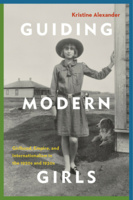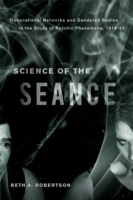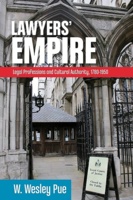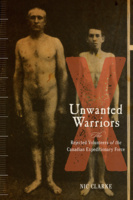Guiding Modern Girls
Girlhood, Empire, and Internationalism in the 1920s and 1930s
By analyzing how the Girl Guide movement sought to maintain social stability in England, Canada, and India during the 1920s and 1930s, this book reveals the ways in which girls and young women understood, reworked, and sometimes challenged the expectations placed on them by the world’s largest voluntary organization for girls.
Turning Point 1917
The British Empire at War
A panoramic view of the British Empire during the most pivotal and dynamic twelve months of the Great War.
Science of the Seance
Transnational Networks and Gendered Bodies in the Study of Psychic Phenomena, 1918-40
In this enthralling study of the ethereal, the scientific, and the strange, Beth A. Robertson investigates the gendered world of the seance, a place where self-proclaimed “psychic researchers” laid claim to objectivity and where spiritual mediums and the spirits they channeled resisted their methods.
New Treaty, New Tradition
Reconciling New Zealand and Maori Law
Maori author and legal scholar Carwyn Jones provides a nuanced analysis, enhanced by storytelling, of the New Zealand land claims process to draw attention to the cultural implications of Indigenous self-determination, settlement negotiations, and reconciliation projects around the globe.
Lawyers’ Empire
Legal Professions and Cultural Authority, 1780-1950
In approaching the history of the legal professions through the lens of cultural history, Wes Pue locates the legal profession within England and its empire, supplementing and disrupting established narratives of professionalism as proffered by lawyers and their critics.
Unwanted Warriors
Rejected Volunteers of the Canadian Expeditionary Force
This book uncovers the history of Canada’s first casualties of the Great War – men who tried to enlist, were deemed “unfit for service,” and then lived with shame, guilt, and ostracism.
Settler Anxiety at the Outposts of Empire
Colonial Relations, Humanitarian Discourses, and the Imperial Press
A fascinating look at how humanitarian language was used by the colonial press in New Zealand and on Vancouver Island to justify ongoing settler expansion while allaying fears of Indigenous resistance.
Fragile Settlements
Aboriginal Peoples, Law, and Resistance in South-West Australia and Prairie Canada
Fragile Settlements compares the historical processes through which British colonial authority was asserted over Indigenous people in southwest Australia and prairie Canada from the 1830s to the early twentieth century.
Strong, Beautiful and Modern
National Fitness in Britain, New Zealand, Australia and Canada, 1935-1960
Strong, Beautiful and Modern tells the story of the national fitness campaigns spanning the “British world” beginning in the 1930s.










